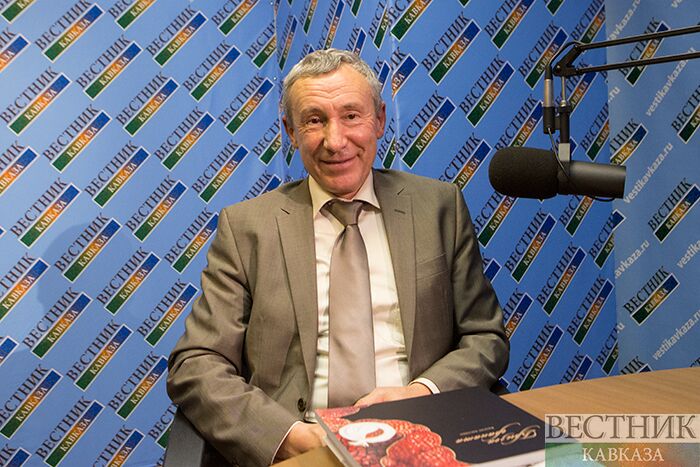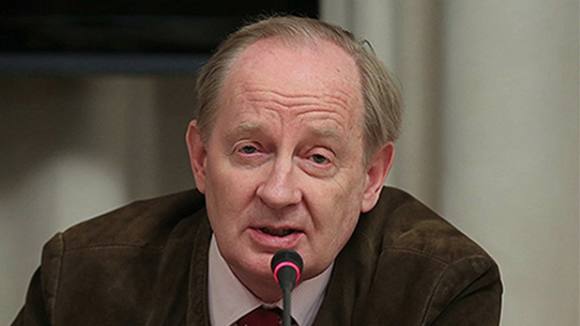Dialogue between Russia and France will contribute to preserving the unity of Syria and the peaceful settlement of the military conflict. This view was reached by participants of the Moscow-Paris video conference talks in the press center of the Russia Today agency.
Recently, a group of French parliamentarians visited Syria, where it was able to assess the situation.
After returning from Syria, the member of the French National Assembly's Commission on National Defense and Armed Forces, secretary of the French-Russian friendship group in the Parliament, Nicolas Dhuicq, said that the Western media do not write enough about the difficult situation in Syria: "Before Aleppo, there were more than 2 million inhabitants, now there are approximately 1.5 million. A huge number of refugees, a huge number of killed people ... In addition, about 40,000 foreign military from a number of countries are also involved in this war. There is a regional game for spheres of influence between different factions, occuping different parts of the country ... The only power that properly intervened in order to support the Syrian people, including Christians, is Russia."

Nicolas Dhuicq expressed an opinion that if the situation in Syria was corresponded to reports in the Western media, then President Bashar Assad would have been dead long ago: "Now there is no future without President Assad. Negotiations with ISIS and An-Nusra, no matter what they call themselves, are not possible. Of course, it is necessary to take into account that there are forces from Russia, the United States in Syria, as well as Kurdish forces. The goal of the US Conservatives was the division of Syria, and in this regard, it is especially important that Russia and France together support a policy that will be aimed at the unity of Syria for preserving peace in this region. "

According to the chairman of the Federation Council’s Foreign Affairs committee, Konstantin Kosachev, there is another group of parliamentarians in Syria from Russia, the European Parliament and a number of national parliaments of the EU countries. "The trend of visiting Syria by European parliamentarians is gaining momentum. A special intergroup on the Syrian dossier has already been created in the European Parliament. It means that our joint efforts are not in vain and that our consolidated voice in support of the political process in Syria is increasingly heard in the world. It is heard by both the people belonging to the pro-government political forces in Syria and the opposition: the moderate opposition, the armed opposition, any other opposition that is willing to distance itself from terrorism. We and our French colleagues are unanimous in our assessments of the situation in Syria," Kosachev said.
According to him, there was no pause between Russia and France on the parliamentary line, despite the complications in the bilateral interstate relations, the EU's sanctions policy towards Russia: "Our relations are developing dynamically, constructively and meaningfully. We remember that both chambers of the French parliament with a small interval adopted the resolutions with the appeals to the French government to take a more active, more flexible position with regard to lifting or mitigating the EU's sanctions policy. Many French parliamentarians, including Mr. Dhuicq, travel to the scene, in this case, Syria, in order to make their own impression of what is happening in the country. We are grateful to our French colleagues for this active civil and political position, which we share and support, and, of course, which is the future of our bilateral relations and the work we are doing together to unify Europe without dividing lines, about which politicians in France and in our country have dreamed for many decades."

Accoridng to the deputy chairman of the Federation Council Committee on International Affairs, head of the Federation Council delegation to the Committee for Parliamentary Cooperation 'Russia-European Union', Andrey Klimov, it is necessary to make sure that people not only in France but also in other countries of the European Union, those making decisions, would deal with the settlement of the conflict, but not with attempts to dispute with Russia over Syria. It gives the impression that our partners do not so much want to find a solution to the Syrian issue, as want to continue the confrontational dialogue with Moscow. And it really hinders the settlement. The Russian Armed Forces are present in Syria at the invitation of the current government, and the remaining armed groups coming to this country do not have such a mandate. We adhere to the principles of international law and the UN Charter, but not all our Western partners can say the same. However, it is impossible to solve such problems without wide dialogue, including with France. We have been open to this dialogue from the very beginning. Our president said that if the French navy appears on the coast of Syria, our navy should act together with the French, as with comrades in arms. "
Klimov recalled that recently Euronews, a company broadcasting from France, showed footage as if Russian bombers had dropped bombs in Syria [against peaceful population]: "Then it turned out that they were American bombers. But Euronews said nothing about it... Therefore, parliamentarians and public figures need to reach direct dialogues, look for new forms. Our current actions in Syria is a new form, when we travel there, hand in hand, we drive in same cars, live in same hotels, risk equally. When we see it together, it is always better than if we see it separately. I think that our dialogues with Paris allow us to react quickly to the current situation, creating new forms of parliamentary and public cooperation. "

Political scientist, historian, philosopher, professor of economics, anti-terrorism specialist, former deputy of the National Assembly and European Parliament, Ivan Blot, who was a consultant to the French government on combating terrorism for 10 years, said: "I am an expert on the 'Islamic state' ideology. This 'state' is a huge danger for France, Russia and the whole world. This totalitarian phenomenon is comparable to Germany in the times of the Third Reich. But then the enemy was alone, it was clear, and now part of the Western government circles refuses to clearly outline the common enemy. It prevents cooperation. It is necessary to designate a real opponent. French public opinion cannot be deceived, although some media are blaming Bashar Assad for everything that happens in Syria. The situation should improve in the future. In France there are MPs who agree to travel to Syria, as Nicolas Dhuicq did, there are other circles that are determined to fight the 'Islamic state', that are ready to support Bashar Assad and his allies in Syria".






